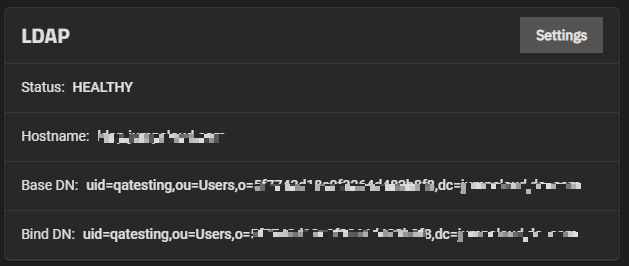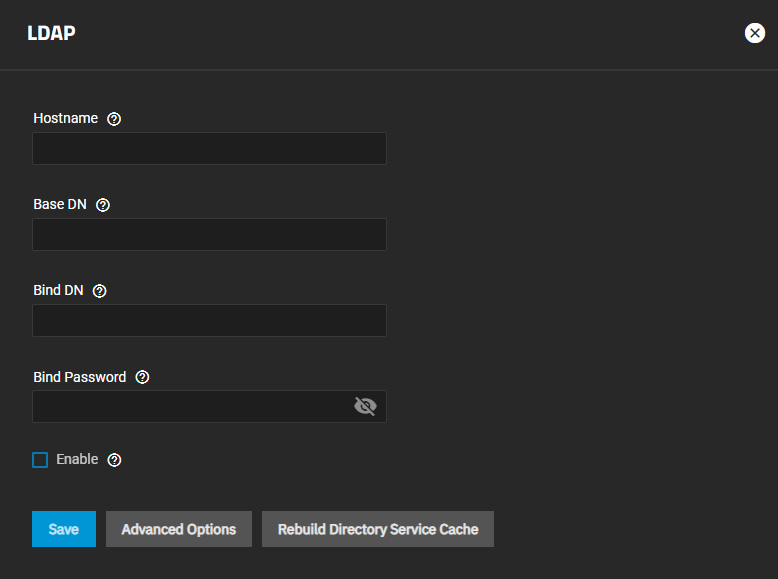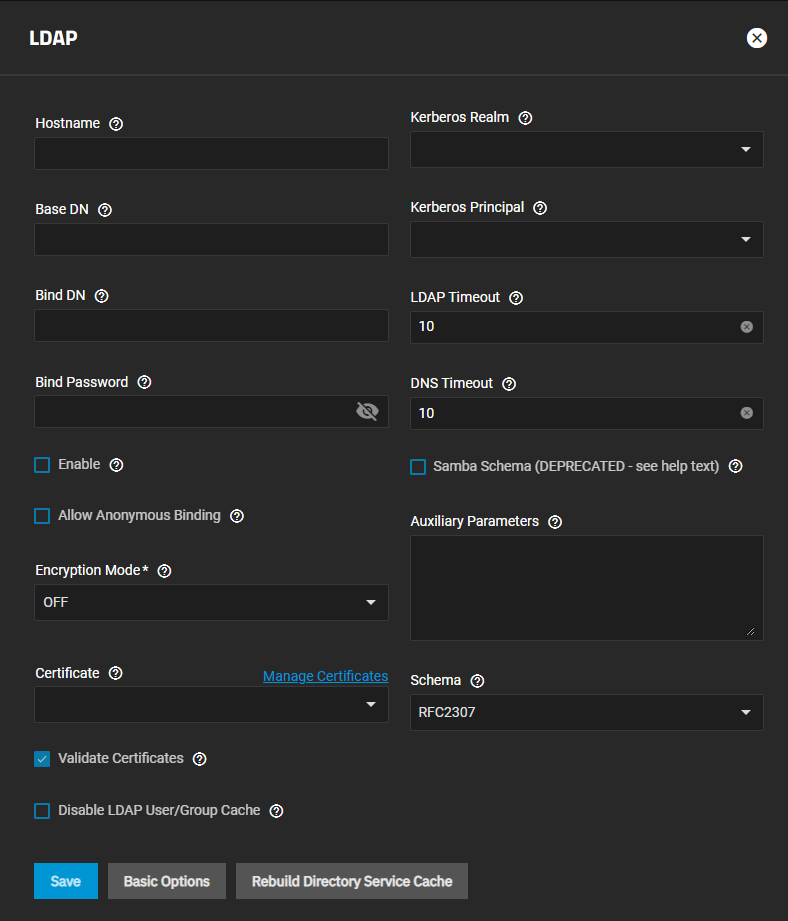TrueNAS Documentation Archive
This content follows the TrueNAS 23.10 (Cobia) releases. Archival documentation is provided for reference only and not actively maintained. Use the Product and Version selectors above to view content specific to different TrueNAS software or major version.
LDAP Screens
3 minute read.
Last Modified 2023-07-24 15:49 EDTThe LDAP widget displays after you configure SCALE settings for your LDAP instance. The widget includes Status, and the Hostname and Base DN and Bind DN you configured.

Settings opens the LDAP screen.
The LDAP configuration screen has two screens, Basic Options the default view, and Advanced Options. After configuring LDAP, the edit LDAP screen includes both the basic and advanced options.
Rebuild Directory Service Cache resyncs the cache if it gets out of sync or there are fewer users than expected are available in the permissions editors.
The settings on the Basic Options also display on the Advanced Options screen.
The settings on the Advanced Options screen include the Basic Options screen.





